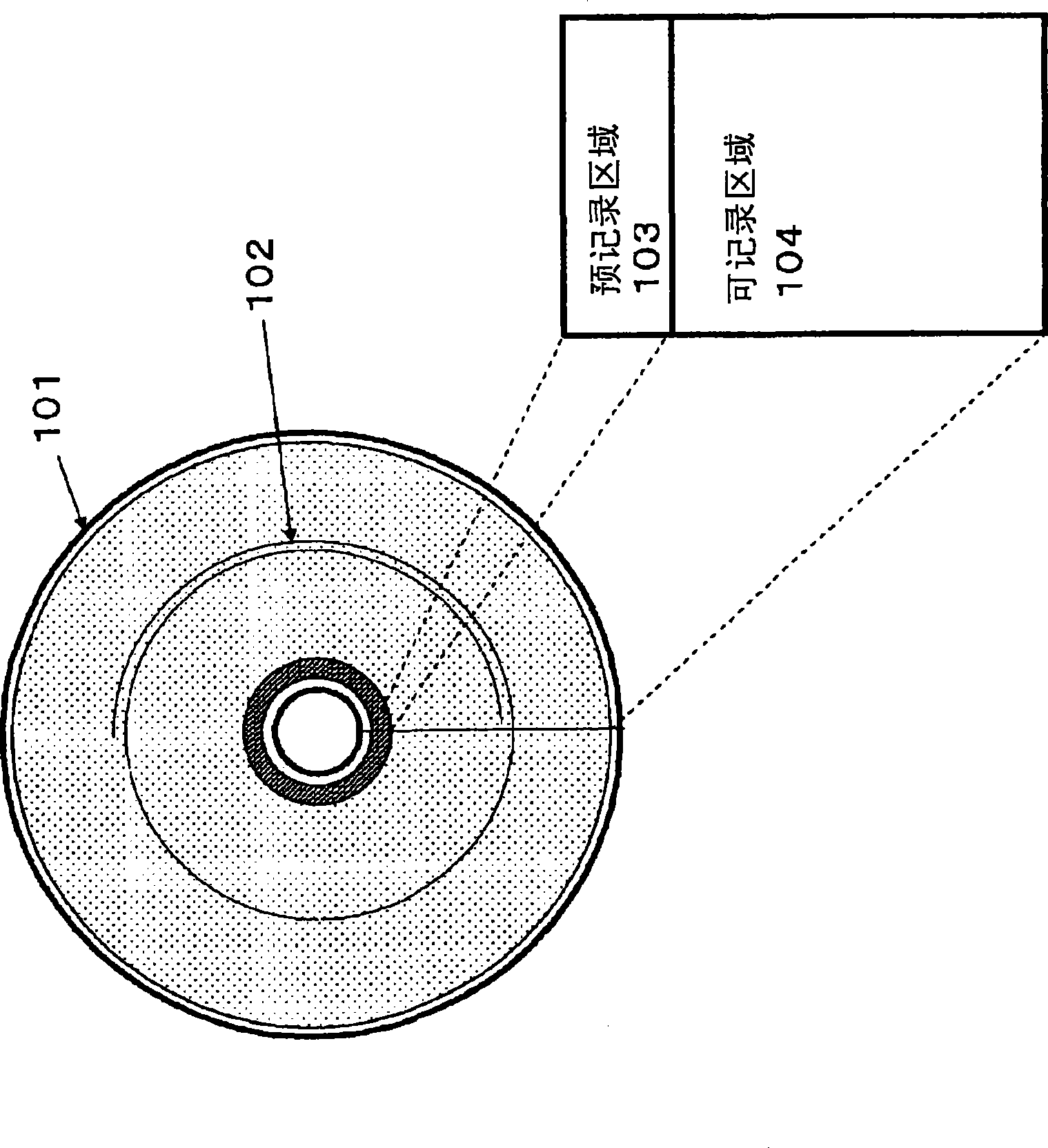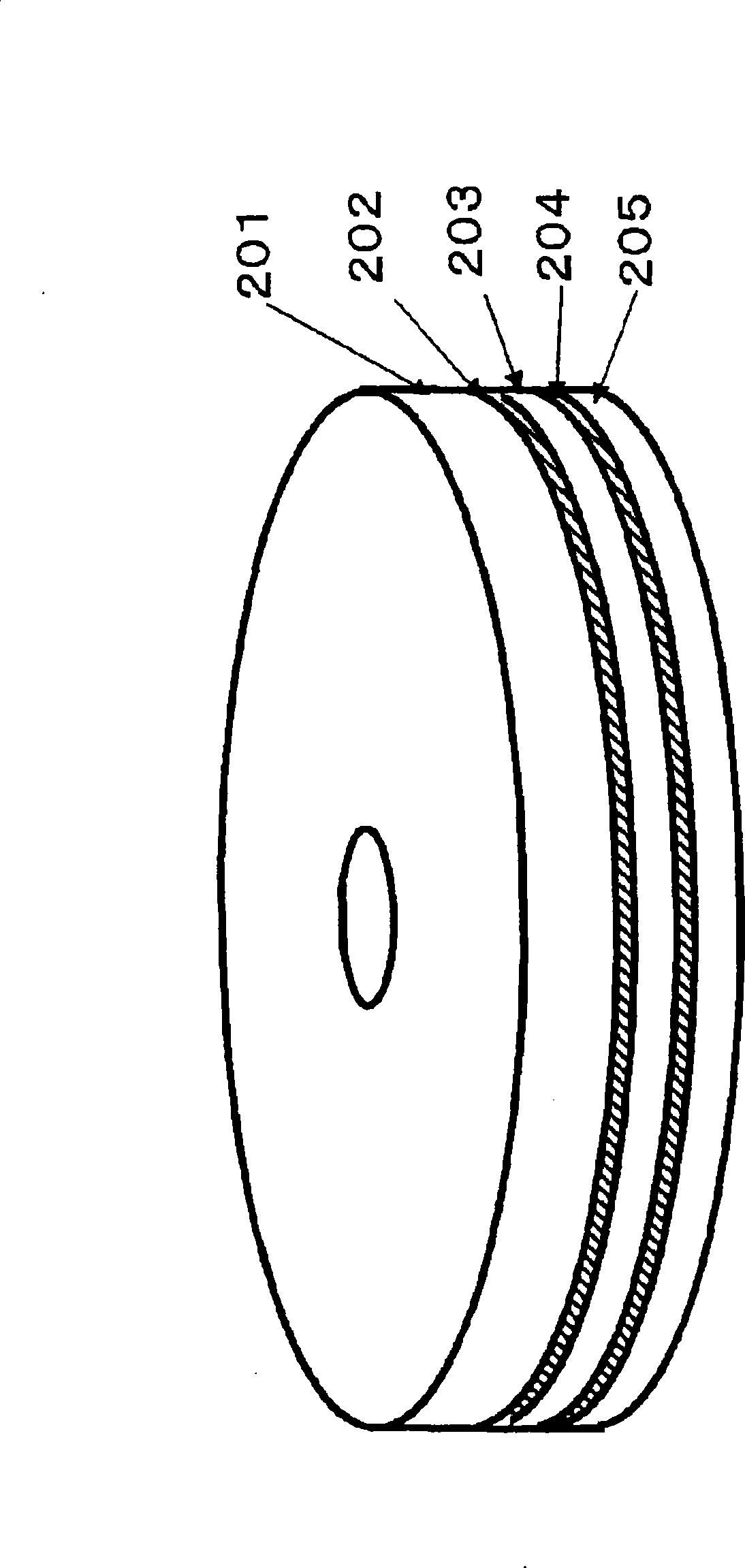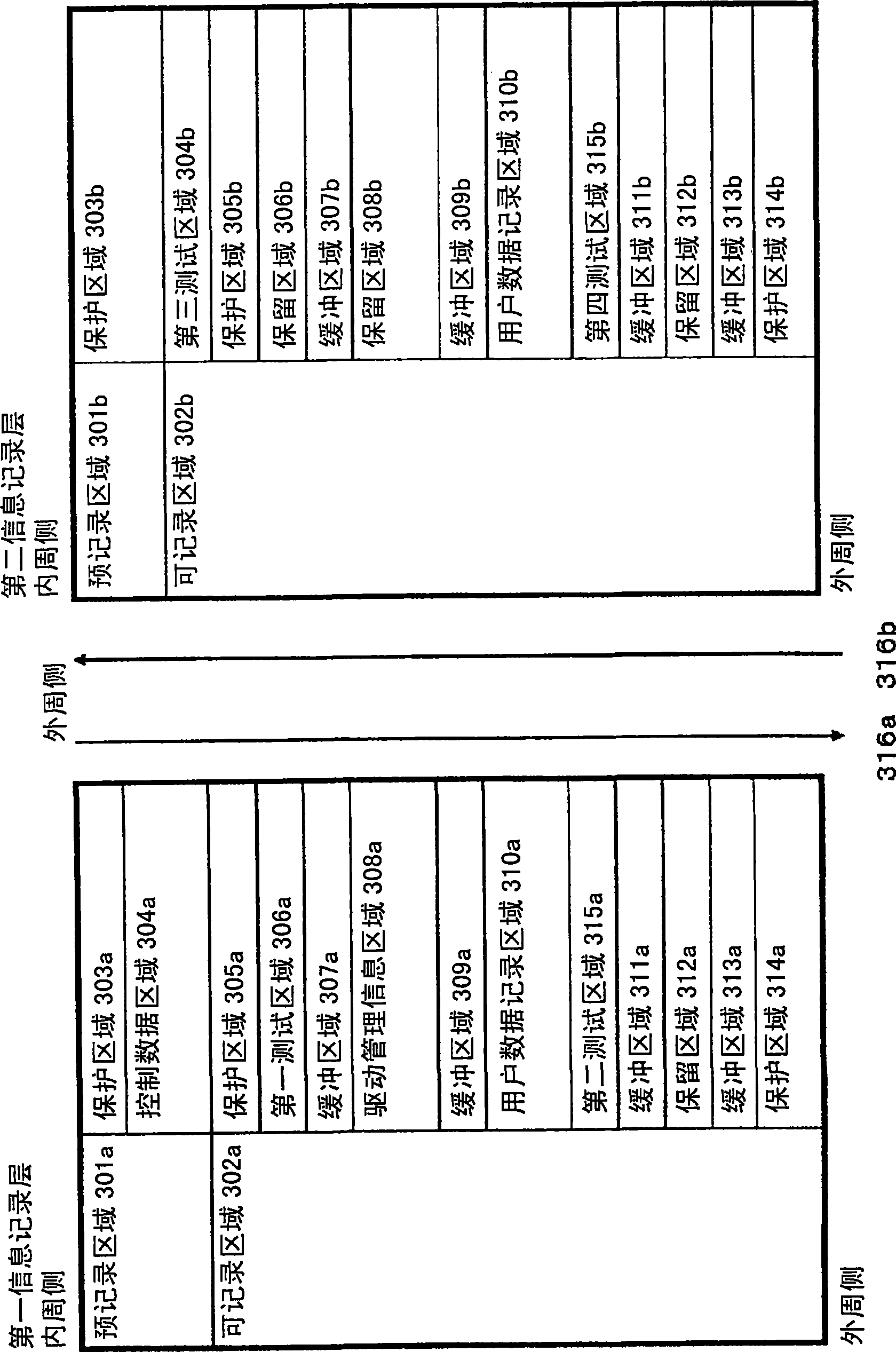Optical disc and optical disc device
A technology for optical discs and light incident surfaces, applied to optical record carriers, recording/reproducing with optical methods, instruments, etc., can solve the problem of not being able to obtain the best value of the recording power of the L0 layer, and reduce the recording capacity and reduce the zoom out effect
- Summary
- Abstract
- Description
- Claims
- Application Information
AI Technical Summary
Problems solved by technology
Method used
Image
Examples
Embodiment approach 1
[0042] figure 1 The structure of the optical disc 101 according to Embodiment 1 of the present invention is shown, especially the structure of the first information recording layer.
[0043]On the optical disc 101, a plurality of tracks (tracks) 102 are formed concentrically. Alternatively, a single track 102 may be formed spirally on the optical disk 101, or a plurality of tracks 102 may be formed spirally.
[0044] The area of the optical disc 101 includes a pre-recorded area 103 and a recordable area 104 .
[0045] Various parameters necessary for accessing the optical disc 101 are stored in the pre-recorded area 103 .
[0046] In the recordable area 104, recording learning and recording and reproduction of user data are performed.
[0047] figure 2 The structure of the single-sided two-layer optical disc of the present invention is shown.
[0048] exist figure 2 Among them, 201 is a substrate, 202 is a first information recording layer, 203 is a space layer such ...
Embodiment approach 2
[0073] Figure 8It is a layout diagram showing the radial positional relationship of the main part of the optical disk area in another embodiment of the present invention.
[0074] In this figure, the upper part represents the protection area 503a, the control data area 504a, the protection area 505a, the first test area 506a, the buffer area 507a, the drive management information area 508a, the buffer area 509a, the user data recording area of the first information recording layer. area 510a and a second test area 515a. In this figure, the lower part represents the protected area 503b, the third test area 504b, the reserved area 505b, the protected area 506b, the reserved area 507b, the buffer area 508b, the reserved area 509b, the buffer area 510b, the user data recording layer of the second information recording layer. area 511b and a fourth test area 515b. other structures and the content of each area is related to the image 3 The two-layer optical discs in Embodimen...
Embodiment approach 3
[0088] use Figure 9 as well as Figure 10 , an optical disc device for recording on the optical disc described in Embodiment 1 or 2 will be described.
[0089] Figure 9 It is a block diagram showing the outline of the optical disc device 600 .
[0090] exist Figure 9 Among them, 601 is an optical disc. The optical disc 601 has the structure described in the first or second embodiment. Among them, the optical disc device 600 can record on an optical disc having a conventional structure, for example, a single-layer optical disc.
[0091] In addition, 602 is a semiconductor laser, 603 is a collimating lens, 604 is a beam splitter, 605 is a converging mechanism, 606 is a converging lens, 607 is a light detection mechanism, 608 is a reproduction signal calculation mechanism, and 609 is a focus control mechanism. , 610 is a tracking control mechanism, 611 is an actuator, 612 is a controller, 613 is a laser drive mechanism, 615 is a signal processing unit.
[0092] Here, an...
PUM
 Login to View More
Login to View More Abstract
Description
Claims
Application Information
 Login to View More
Login to View More - R&D Engineer
- R&D Manager
- IP Professional
- Industry Leading Data Capabilities
- Powerful AI technology
- Patent DNA Extraction
Browse by: Latest US Patents, China's latest patents, Technical Efficacy Thesaurus, Application Domain, Technology Topic, Popular Technical Reports.
© 2024 PatSnap. All rights reserved.Legal|Privacy policy|Modern Slavery Act Transparency Statement|Sitemap|About US| Contact US: help@patsnap.com










